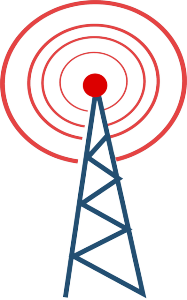KPFA PROGRAM COUNCIL —
What is it? Why is it important? What did it do? Where did it come from? Why should I care that it is gone?
[Written c. 2009, still relevant today!]
The Program Council (or programming committee) at KPFA has existed since the 1970’s – over 35 years. [45 in 2015.] During that time, its been composed of managers for the departments of public affairs, news, music and arts and humanities, representatives of the hundreds of unpaid programmers, often elected under the supervision of the Unpaid Staff Organization (UPSO) and at various times, technical and operations staff, managers from the apprenticeship program, local board members and listener representatives.
At times it has been facilitated by a program director or coordinator, and sometimes by someone else in the group chosen by the members. The author of this piece served in that role from 2004 to 2007 as a listener representative.
Birthed in the mobilizations of the 60’s and 70’s that demanded a meaningful place at the table for the perspectives of marginalized groups (and created at KPFA a Women’s Desk, a Third World Center, and the Unpaid Staff Organization itself), the program council had the philosophy that collaborative decision making about programming was healthy and desirable for a voice of dissent and resistance. Protected by a confidentiality agreement that allowed staff, volunteers and later listener reps to talk candidly about their programming visions and critiques, the program council always played an important role in airing and discussing contentious issues. During the many years the station lacked a program director (including the years 2000 to 2006), the program council took on much of the responsibility for non-emergency decision-making.
Some of the things accomplished in that period of time:
- Added locally-generated programs to the grid: Guns and Butter, Voices of the Middle East and North Africa, Youth Radio, Education Today, Pushing Limits, Women’s Magazine, Rock en Rebellion, Bay Native Circle, Full Circle.
(In the same interval of time – the only programs added to the schedule by management policy were Against The Grain, Sundays with Peter Laufer (since canceled) and imported programs from New York (Behind The News) and LA (Uprising).
- Evaluated 2/3 of the current programs with a thorough 5 page evaluation form and programmer briefing
- Developed a program proposal process for new additions to the grid from community members, processed over 40 demos, interviewed the programmers and developed a waiting list of approved programs.
- Attempted to implement a contract basis for programming where individual programs would sign an agreement for a program slot for a contained period of time (until the next evaluation – projected for 2 years apart).
(Current system is indefinite until programmer voluntarily relinquishes a slot or is taken abruptly off the air; examples: Youth Radio, Peter Laufer)
The program council couldn’t always solve every contentious issue. In 2003, it was temporarily dissolved when its decision to move Democracy Now! from its current airing time of 6 am and 9 am to one daily 7 am airing failed to be implemented by station management.
When the program council was re-assembled, the Local Station Board passed a motion affirming the decision making power given to it. It also made a highly controversial decision to place a one year moratorium on new proposals from a group called the Labor Collective.
In 2006, after a long interval without a full-time Program Director, KPFA finally assigned an interim person to the position. Unfortunately, the results were:
- Suspension of meetings from April 2007 to October 2007
- Unilateral reduction of meetings from weekly to bi-weekly
- A statement that the program council was advisory only,
- Removal of program proposals for long and short-term programs from the review of the council
- Jettisoning of the approved program waiting list that had been created after the program council slogged through a backload of 20+ proposals between 2004 and 2005
- Replacement of the established evaluation process with a one-page Survey Monkey online survey.
This is not what the unpaid staff organized, fought and went on strike for in 1970’s
This is not what the listeners envisioned when so many of them marched to protect KPFA in 1999.
KPFA is not to be encompassed by any one single person’s vision. The delivery of the mission depends on many perspectives being brought to bear and on sharing experiences, building understanding and resolving differences. If we cannot do that within our own community and build collaborative working groups, how can we hope to do so out in the world?
All the stakeholders sitting down and hashing out the best way to put the 59,000 watts into service for peace and justice. That’s the mission.
by Tracy Rosenberg, Media Alliance
2015 Postscript – To date the Program Council has not been reinstated because the SaveKPFA majority on the Local Station Board rejected a democratically-constituted Program Council, as existed before. They preferred one dominated by department heads, which would hardly function as a democratic Council, dedicated to community programming.

